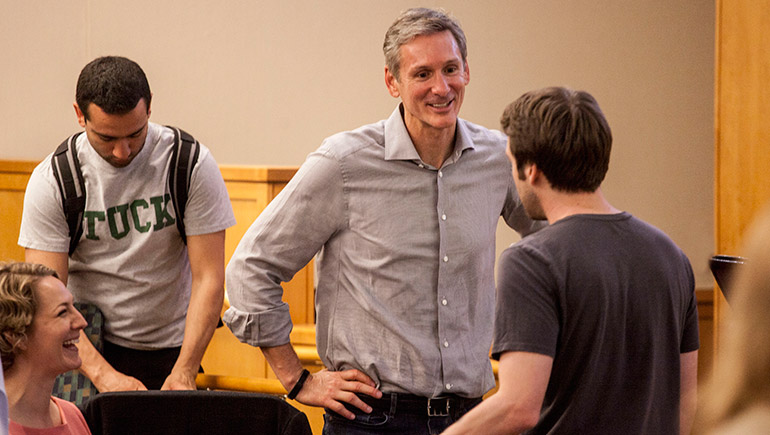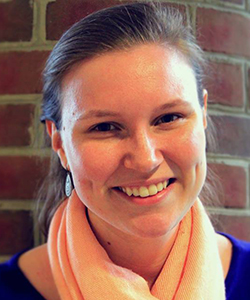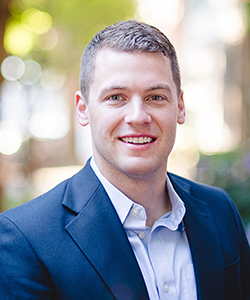Events & Promotions
|
|

GMAT Club Daily Prep
Thank you for using the timer - this advanced tool can estimate your performance and suggest more practice questions. We have subscribed you to Daily Prep Questions via email.
Customized
for You
Track
Your Progress
Practice
Pays
Not interested in getting valuable practice questions and articles delivered to your email? No problem, unsubscribe here.
- Nov 19
09:00 AM PST
-10:00 AM PST
What’s in it for you- Live Profile Evaluation Chat Session with Jenifer Turtschnow, CEO ARINGO. Come with your details prepared and ARINGO will share insights! Pre-MBA Role/Industry, YOE, Exam Score, C/GPA, ECs Post-MBA Role/ Industry & School List. - Nov 19
10:00 AM EST
-01:00 PM EST
Get expert MBA strategy, instant essay feedback, and personalized advice on your entire application. Join My Admit Coach, the AI-powered MBA admissions platform built on 10K+ successful application docs for HBS, Stanford GSB, MIT and other top programs. - Nov 19
11:00 AM EST
-12:00 PM EST
Looking to secure a coveted spot at a top business school? Our team of seasoned MBA admissions consultants, including top B schools alumni and industry leaders, is here to help turn your dreams into reality. Let’s kick-start your journey to success! - Nov 19
11:00 AM PST
-12:00 PM PST
Round 2 is here — and it’s your chance to make your MBA dream happen! Join GMAT Club’s LIVE discussion with two top experts from The Red Pen, Gunjan Jhunjhunwala and Natasha Mankikar, as we break down everything you need to know - Nov 12
01:00 PM EST
-11:59 PM EST
Get expert MBA strategy, instant essay feedback, and personalized advice on your entire application. Join My Admit Coach, the AI-powered MBA admissions platform built on 10K+ successful application docs for HBS, Stanford GSB, MIT and other top programs. - Nov 20
07:30 AM PST
-08:30 AM PST
Learn what truly sets the UC Riverside MBA apart and how it helps in your professional growth - Nov 20
10:00 AM EST
-10:30 AM EST
If you’re applying to Columbia, NYU Stern, or Yale SOM, you need more than strong stats. Each school defines “leadership” differently, and your essays must reflect that. Join Sia Admissions founder, Susan Berishaj on November 20th - Nov 20
09:00 PM IST
-10:00 PM IST
Join our free expert-led Essay Workshops to discover how to choose impactful stories, highlight your core values, and align your background with each school’s distinct culture, making every word truly count. - Nov 21
08:30 AM EST
-09:15 AM EST
Get the inside scoop on what makes Emory’s Goizueta Business School great, learn how you can present a strong MBA application, and connect with an Admissions Director to get your questions answered. - Nov 21
09:30 PM IST
-10:30 PM IST
Learn how to craft powerful, authentic essays by mastering the 3 “WHYs” every top MBA program looks for: Why MBA, Why Now, and Why This School. - Nov 24
08:00 PM PST
-09:00 PM PST
Inquire for a free profile evaluation and guarantee statement for possible admits and scholarships!
Kudos
Bookmarks

By Adam Hoff, Amerasia Consulting Group
As we move through the winter months and host calls with b-school candidates for the upcoming cycle, it's interesting to note that some admissions questions come up a lot more this time of year than they do later. We are going to try to use that as a cue to address these types of issues and concerns here on the blog - and we are starting with a very common question this far out from the process, which is "what round should I apply in?"
THE ANSWER TO THIS QUESTION DEPENDS LARGELY ON THREE FACTORS: [/b]
Level of readiness (will you have everything done by Round 1, will have you time to put forward your best effort, are there any post-Round 1 events that would strengthen your case such that you should wait)[/*]
[*]Which schools you are applying to[/*]
[*]Your level of desire to keep your entire process "in lockstep" (having all your deadlines, interviews, decisions, etc. take place around the same time)[/*]
[/list]
We can throw out #1 for the purposes of this post, as each person is different and there is no reason trying to cover every permutation. #3 can be handled quickly. Basically, if you are someone that looks to group things up, or avoid protracted periods of ambiguity, or even just logistically have things organized, you should probably try to pick a round and apply to your schools that round, rather than spread them out or try to "game" things. If you don't care about that, or you even prefer to spread out a process, than a blend of Round 1 and Round 2 may be for you.
WITH THAT OUT OF THE WAY, HOW DO SCHOOLS PLAY A ROLE IN ALL THIS?
Basically, you want to think about the schools as belonging to three groups: "Round 1 is better", "Round 2 (possibly) is better", and "It doesn't matter."
ROUND 1 IS BETTER
In my opinion, there are five schools where it is better to apply to the earliest round (technically, we've been using "Round 1" but what this means is basically the earliest deadline). They are:
[*]Columbia Business School Early Decision[/*]
Duke Fuqua Early Decision[/*]
[*]Dartmouth Tuck Early Action (Decision)[/*]
[*]MIT Sloan Round 1[/*]
[*]Stanford GSB Round 1[/*]
[/list]
Columbia is a full-on Early Decision, and both logic and stats bear out that it's better to apply early if it's a top choice (and/or you are willing to eat a huge deposit). Duke and Tuck also have early application periods and in the case of Tuck in particular, they like to see real interest given the school's remote location, and applying early can be a good way to show that level of passion. With MIT Sloan it's more of a feel thing - because they only have two rounds, I would much rather see someone apply to the "first" rather than the "last" round.
Stanford GSB is the one where it's more nuanced. Because Stanford uses a more curatorial approach to building a class (think of most schools as customs agents stamping a long line of passports, whereas Stanford GSB is someone putting a seating chart together for a wedding reception), it follows that you want to be seen earlier in the process rather than later. This is because you run a larger risk of them already have people "like you" from Round 1 if you wait. We're obviously talking about the margins here, given the school's obscenely low acceptance rate, but then again, winning on the margins is often the key.
ROUND 2 IS (POSSIBLY) BETTER
- HBS
- EU Schools
With HBS, this take is a little more unique, but I actually believe you have a slight advantage waiting for Rd 2. I wrote about Rd 2 in general here (https://www.amerasiaconsulting.com/blog/2015/7/15/looking-for-an-mba-advantage-consider-round-2), but will quote the relevant part about HBS:
"Display of confidence. I have seen more HBS clients of mine get in during Round 2 the last few years, honestly, and I think it's in part because it shows a really assured attitude. It's almost "I don't need to scramble around like a maniac for your increasingly, insanely early deadline. I'll lay back. I'm good." And I truly believe that confidence gets rewarded. Again, I can't prove it, so I'm not going to tell all of my HBS clients to NOT apply Round 1 ... but I truly think they might have a slightly better chance if they wait."
The idea here is that as HBS continues to test how confident and self-possessed the applicants are, the more merit there is to possibly waiting. You can let all your Type A peers rush to meet a deadline that gets earlier every year, while you hang back and show a little more confidence that your abilities and accomplishments are more than enough to carry the day. It's once again a battle on the margins, but as with GSB, that can make a difference.
IT DOESN'T MATTER
All the other schools. Seriously, you will hear them say Round 1 is better if you go to an information session before Round 1, but that is to drive applications. If you go to the same session you will hear a new spin saying how Round 2 is just as good. At every other top school in the world - I have seen no evidence (statistical or anecdotal) that there is a difference between Round 1 and Round 2.
So ... "If I am applying to Stanford AND HBS, what should I do?"
You should apply Round 1. Unless you are someone okay with spreading out your process and using multiple rounds (which means doubling the length of this ordeal, having two waves of interviews, having competing enrollment deadlines, etc.), you are going to want to apply to your schools in lockstep. And, to me, the upside of of applying Round 1 to GSB is much higher than applying to Rd 2 to HBS.
FINAL THOUGHT
It goes without saying, but we will say it anyway, that you need to apply with the best possible application. If you submit something mechanical or shoddy or lacking depth or that fails to connect with program DNA, it won't matter which round you apply.
No matter the round, we have helped more than 1000 clients successfully apply to top business schools worldwide since 2008. Let us help you figure out your next step. Schedule a complimentary, one-hour consultation with a member of our expert admissions team. Email us at mba@amerasiaconsulting.com or visit us online at www.amerasiaconsulting.com/contact.
Kudos
Bookmarks

Military MBA applicants tend to blow other candidates out of the water, figuratively speaking, because they have a wealth of experience to draw from at a very young age. In fact, my very first client, many years ago, was in the military.
While many candidates can only speak to sitting in cubicles, crunching numbers for the boss, b-school applicants from the military have had to deal with highly stressful situations, think on their feet, make ethical decisions, and lead important projects.
If you have a military background, a great business school program to consider is that of Dartmouth’s Tuck School of Business. The school is hosting a special event for future military applicants on April 18, 2016. The organizers of Tuck Military Visit Day have planned a full schedule of events to help set you up for success in your MBA application process.
There will be a chance to sit in on a class, as well as attend panels hosted by members of the admissions committee, current military students, the Career Development Office and the Financial Aid Office.
If you are planning to apply to the Tuck Class of 2019, you may schedule an admissions interview if you are ready. Military Visit Day kicks off at 7:30am Monday morning, but you can get things started early by joining members of Armed Forces Alumni Association on Sunday night, April 17th, for an informal social.
Registration for Tuck’s Military Visit Day is already open, and the admissions team and military MBA students of Tuck look forward to having you in Hanover.
***
If you are looking for guidance on your MBA application, Stacy Blackman Consulting can help with hourly and comprehensive consulting services. Contact us to learn more. Visit the website for Stacy Blackman Reviews, and check out the company’s e-publications for more in depth school-by-school guidance.
Kudos
Bookmarks

Everyone has an opinion about submitting your MBA application in Round 3—including us here at SBC—and a lot of the conversation circles around how competitive it is and how scarce spots are.
While it may seem only candidates who are also Olympic athletes, chess champions, or have scaled Mount Everest stand a chance, the reality is there is always a spot for a great applicant in the final round. That’s why the schools have one!
The MBA admissions blog at Dartmouth’s Tuck School of Business recently published a useful post on the realities of applying in Round 3, complete with anecdotes and advice from three recent graduates who applied in the April round (as it’s known at Tuck).
Key takeaways from the post include using the optional essay to explain why you waited until the final round; making sure you share something unique about yourself with the admissions committee that will differentiate your candidacy; and obviously, only applying when your application is as strong as it can possibly be.
The good news is that applicants in Tuck’s final round still have a shot at a scholarship, can join a pre-term program with everyone else, and can definitely get a room in the dorms because the housing lottery happens in June.
If things don’t work out this season, the Tuck admissions teams says, “Have a plan B. While you may not get the outcome you hope for, the process will no doubt teach you something about yourself and help guide your next steps.”
In our experience, Round 3 is far and away the most difficult round for MBA applicants. A lackluster application will most certainly find its way to the reject pile, so be strategic when deciding the best time to apply for you.
You may also be interested in:
Evaluate in Which Round to Submit Your B-School Application
Applying to Business School in Round 3
Round 3 Attracts Maverick Applicants
***
If you are looking for guidance on your MBA application, Stacy Blackman Consulting can help with hourly and comprehensive consulting services. Contact us to learn more. Visit the website for Stacy Blackman Reviews, and check out the company’s e-publications for more in depth school-by-school guidance.


































